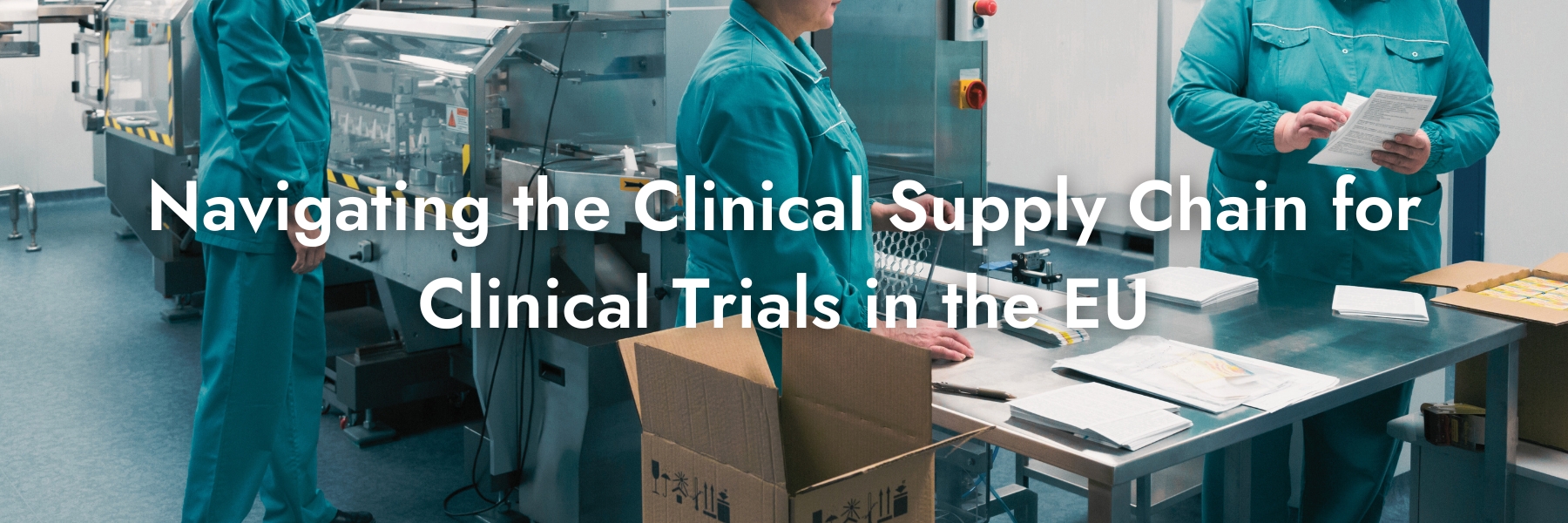Navigating the Clinical Supply Chain for Clinical Trials in the EU
At IMP Clinical Supply Services Ltd., we are privileged to oversee a crucial aspect of the clinical trial process: the clinical supply chain. The European market presents a unique set of challenges and opportunities for bio-startups, particularly in the realm of clinical trials. Understanding and navigating these complexities is essential for any company looking to successfully bring their products to market.
The Importance of a Robust Clinical Supply Chain
The clinical supply chain encompasses the entire process of managing investigational medicinal products (IMPs) from manufacturing through to delivery at clinical trial sites and study closure. In Europe, this process is particularly complicated due to the diverse regulatory environments across different countries. Ensuring a seamless supply chain is critical for the timely and efficient execution of clinical trials. Any disruption can lead to significant delays, increased costs, and potentially, the failure of the trial.
Key components of a robust clinical supply chain include:
- Regulatory Compliance: Each country within the EU has its own regulatory requirements as well as the overriding EU regulation which obligate all member states. A deep understanding of these regulations is essential to avoid compliance issues. This includes adherence to Good Manufacturing Practice (GMP), Good Distribution Practice (GDP), and ensuring all necessary documentation is in place.
- Logistics and Distribution: Efficient logistics are vital for maintaining the integrity of IMPs. This involves temperature-controlled transportation, real-time tracking, and ensuring timely delivery to trial sites.
- Inventory Management: Accurate inventory management is crucial to avoid shortages or overages, both of which can be costly and detrimental to the trial’s progress. The complete balance of a clinical study is also included in the ICH E6 Good Clinical Practice (GCP).
- Communication and Coordination: Effective communication and coordination with all stakeholders, including sponsors, CRO’s, manufacturers, regulatory bodies, and clinical trial sites, are essential for a smooth supply chain operation.
Temperature Monitored Distribution Throughout the EU
A critical aspect of clinical supply logistics and distribution is temperature-monitored transportation. As this is such a critical part of the clinical supply chain, this is required as part of the GDP requirements. Many IMPs, particularly biologics, require challenging temperature conditions throughout the supply chain, including refrigeration, freezing and deep freeze conditions, are sensitive to temperature variations, and must be stored and transported under strict conditions to maintain their efficacy and safety.
Strategies for Temperature-Controlled Distribution
- Cold Chain Logistics: Cold chain logistics involves a series of actions and equipment that maintain a product within a specified low-temperature range from manufacture to end use. This includes refrigerated storage facilities, temperature-controlled vehicles, and insulated containers.
- Real-Time Temperature Monitoring: Advanced tracking systems allow for real-time monitoring of temperature conditions during transit. These systems alert stakeholders to any deviations, enabling immediate corrective actions to prevent product spoilage.
- Qualification and Validation: All equipment and processes used in temperature-controlled logistics must be qualified and validated to ensure they meet required standards. This includes regular maintenance and calibration of temperature monitoring devices.
Challenges and Solutions
- Geographical Variability: The EU comprises a diverse range of climates, from the cold northern regions to the warm southern areas. This variability necessitates robust and adaptable temperature control solutions.
- Logistical Coordination: Coordinating temperature-controlled logistics across multiple countries with different regulations can be challenging. Partnering with experienced logistics providers and leveraging technology for real-time monitoring can help mitigate these challenges.
Written by:
Limor Teomim, CEO at IMP Clinical Supply Services Ltd.
Sofi Glam, VP of Business Development & Customer Success at IMP Clinical Supply Services Ltd.
Aviva Feifer, Business Development Manager at IMP Clinical Supply Services Ltd.


Subscribe Now to the Bio-Startup Standard
Notify me for the next issue!




